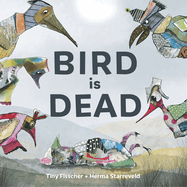Wi2024: Michele Norris & Talking About Race
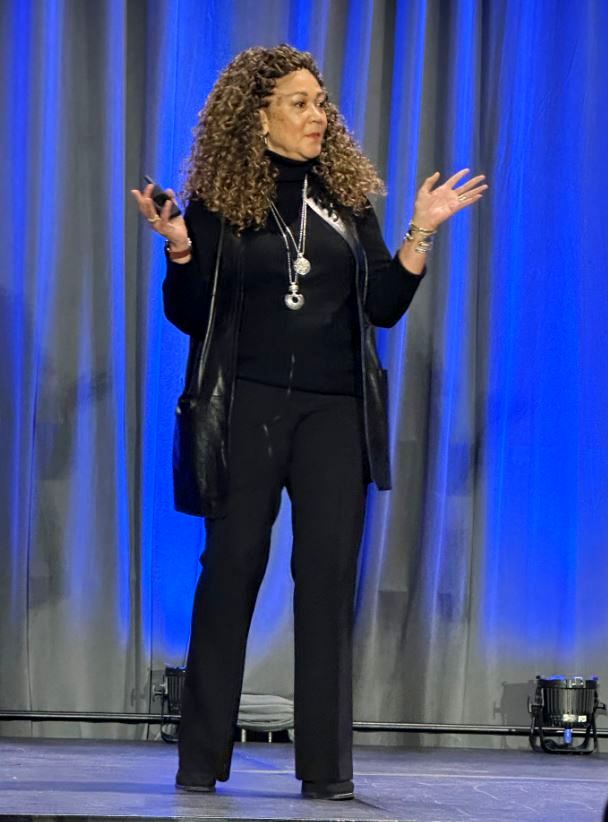 |
|
| Michelle Norris | |
During yesterday's powerful and rousing breakfast keynote at the Winter Institute in Cincinnati, journalist Michelle Norris, author of Our Hidden Conversations: What Americans Really Think About Race and Identity (published by Simon & Schuster last month), focused on the Race Card Project, which she founded early in President Obama's tenure when many people were saying that "having a family of color move into the White House" meant that the country had entered a post-racial era. "It was as if we had taken an express elevator to the top floor and that we had sped past all the icky, yucky stuff that was going to make us uncomfortable," she said.
This led her "to want to go out in America to listen to how Americans talk and think about race." She started in a sense with her family, with stories about race that she had never heard before, which were a key part of her first book, The Grace of Silence: A Family Memoir, published in 2010 by Pantheon. They included her father explaining that his mysterious leg injury had come from a gunshot fired by a police officer in Birmingham, Ala., during a scuffle after the officer tried to keep him from attending a class on constitutional law needed to pass a poll test to be able to vote. And she learned that her grandmother had worked for years for Quaker Oats, dressing up and acting like Aunt Jemima at cooking demonstrations around the country. (She was "subversive" by not following the "slave-lingo" script provided to her and speaking in her normal way, Norris noted proudly.)
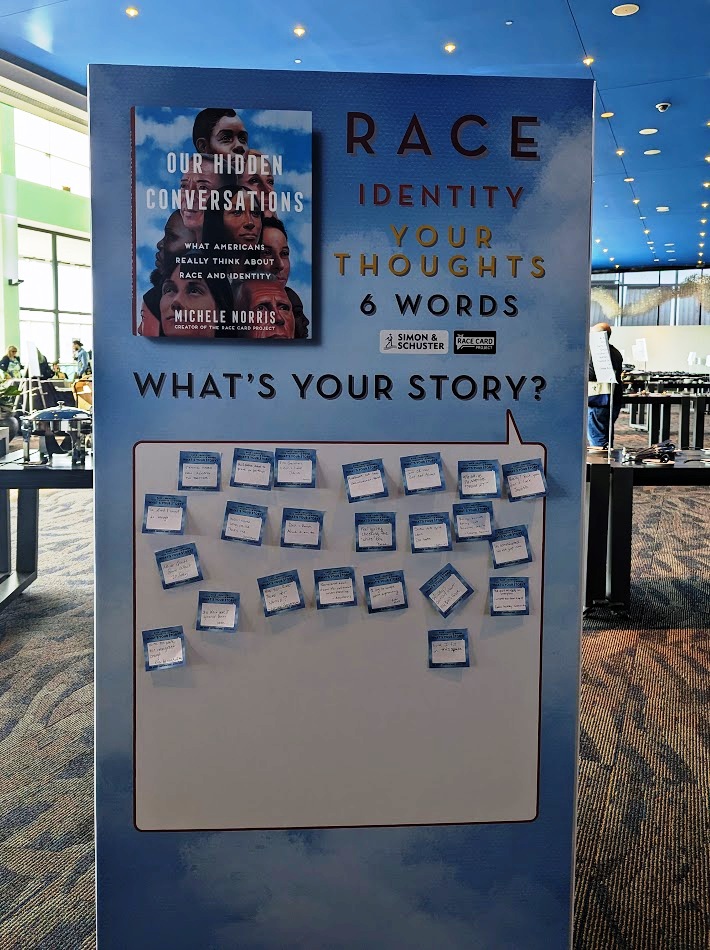 |
|
| After Norris's talk, booksellers contributed their six words. | |
The Race Card Project started off with postcards, asking people to talk about race in six words. (She said she chose six words because people are familiar with six-word exercises, and "because I knew as a writer, when I write something complicated, I try to reduce it to one sentence, and then I understand how I can build it back up." She also liked the simple approach because "this is a big toxic subject" and many people "would rather eat their toenails than talk about race.") Of the first 200 post cards she had printed up and then distributed, leaving them wherever she went, 30% were returned, "an incredible yield."
During a 35-city tour for The Grace of Silence, she distributed postcards "everywhere," including in copies of bestsellers in stores, and right away "they started to come back." Many of them were revelatory, and included touches she didn't anticipate, with some words emphasized by a kind of boldfacing or capitalization or including crossed-out words. (Now most of the contributions arrive digitally and often include images.)
Norris displayed many of the postcards and phrases, which included:
- Married white woman. What now? (From an Asian man who shared many interests with his new wife but found she thought of him as white and assumed he would adopt her culture.)
- White. Not allowed to be proud.
- I'm not the paralegal. I'm the lawyer. (From a black lawyer whose clients, at first meeting her, assumed she wasn't the lawyer.)
- Lady, I don't want your purse. (A phrase that resonated with many in the audience, and involved the kind of comment or gesture that becomes a forgotten moment in time for the person who fears a black person, but can fester for years with the person it is directed at.)
- Must we forget our Confederate ancestors?
- I'm only Asian when it's convenient.
- Hated for being a white cop.
- No, my name is not Maria.
- Did my Southern grandmother attend lynchings? (Norris said if someone has to ask that question, the answer is probably yes.)
- No word for what I am. ("Her dad is Latino," Norris said. "Her mom is Asian.")
- Where are you really from?
- Don't think of you as Asian.
- Father was racist. I'm not. Progress!
- Name is unpronounceable. Never called on.
Norris noted that she started the project because she thought that no one wanted to talk about race, but 500,000 stories later, "I realize people do and they're just looking for the right on ramp." She said she had been "a longtime storyteller," but is now "a story collector."
She talked about the power of people who want to stop conversations about race, saying that she knows her new book will be banned and that The Grace of Silence was banned in more than a dozen states. Still, she continued, race is something we need to talk about and need to figure out how to talk about. Words and books are "the place we can do that....
"Through these stories we can find our histories and through these stories we can find each other, and through these stories we can create bridges of understanding... Right now in this moment in America we need to figure out how we can stay in the same space and listen to each other." She said there were so many young people looking for places of belonging, understanding, with resources to help them, and "the one place they might find it is in your stores." (She earlier had said, "We really do need you right now.") She finished with gratitude for bookstores and booksellers, saying, "Thank you so much for making sure that your doors are open, and I know that's really difficult right now in this moment when people are trying to restrict what you do. I want to say thank you. Thank you from deep down. Thank you."
She received a standing ovation--from deep down. --John Mutter










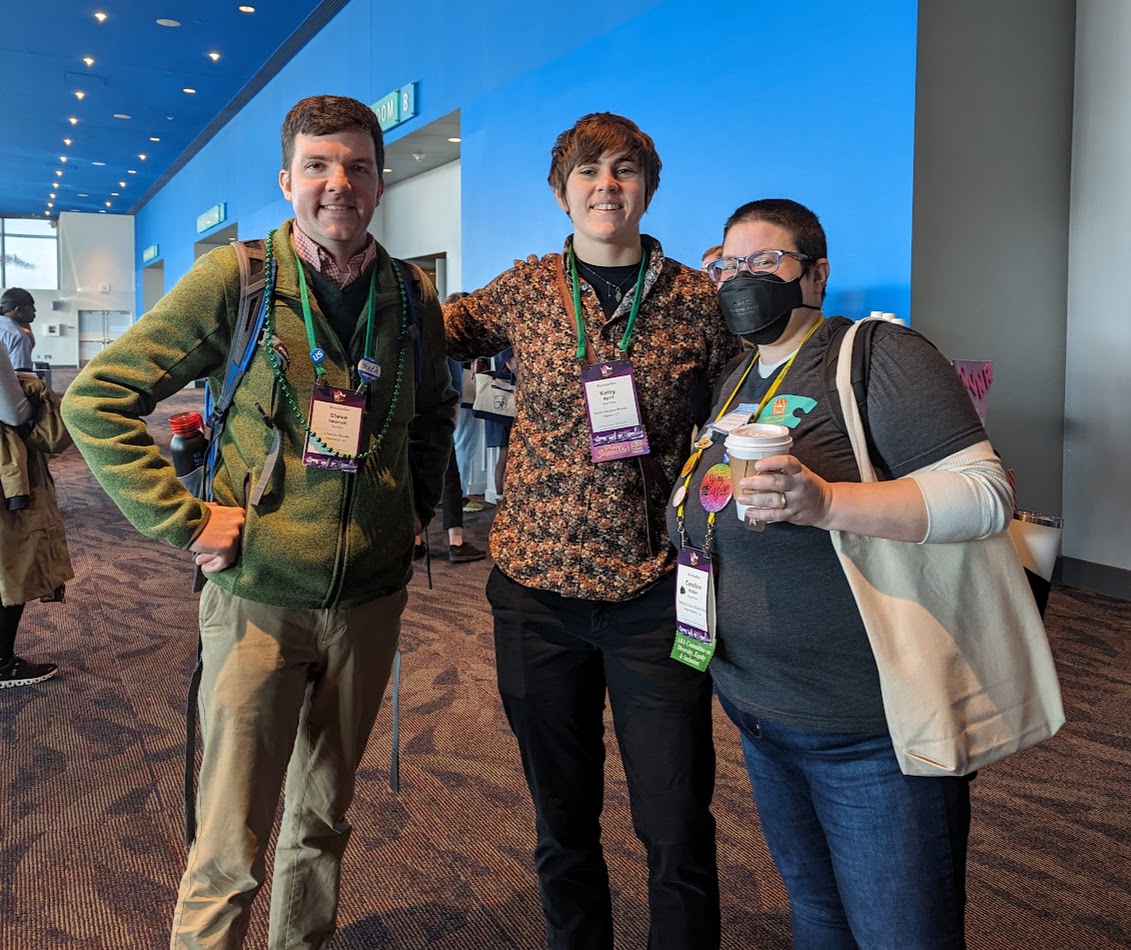 Ready for the day's events: Steve Iwanski, Charter Books, Newport, R.I., Kelsy April, Bank Square Books, Mystic, Conn.; and Candice Huber, Tubby & Coo's Book Shop, New Orleans, La.
Ready for the day's events: Steve Iwanski, Charter Books, Newport, R.I., Kelsy April, Bank Square Books, Mystic, Conn.; and Candice Huber, Tubby & Coo's Book Shop, New Orleans, La.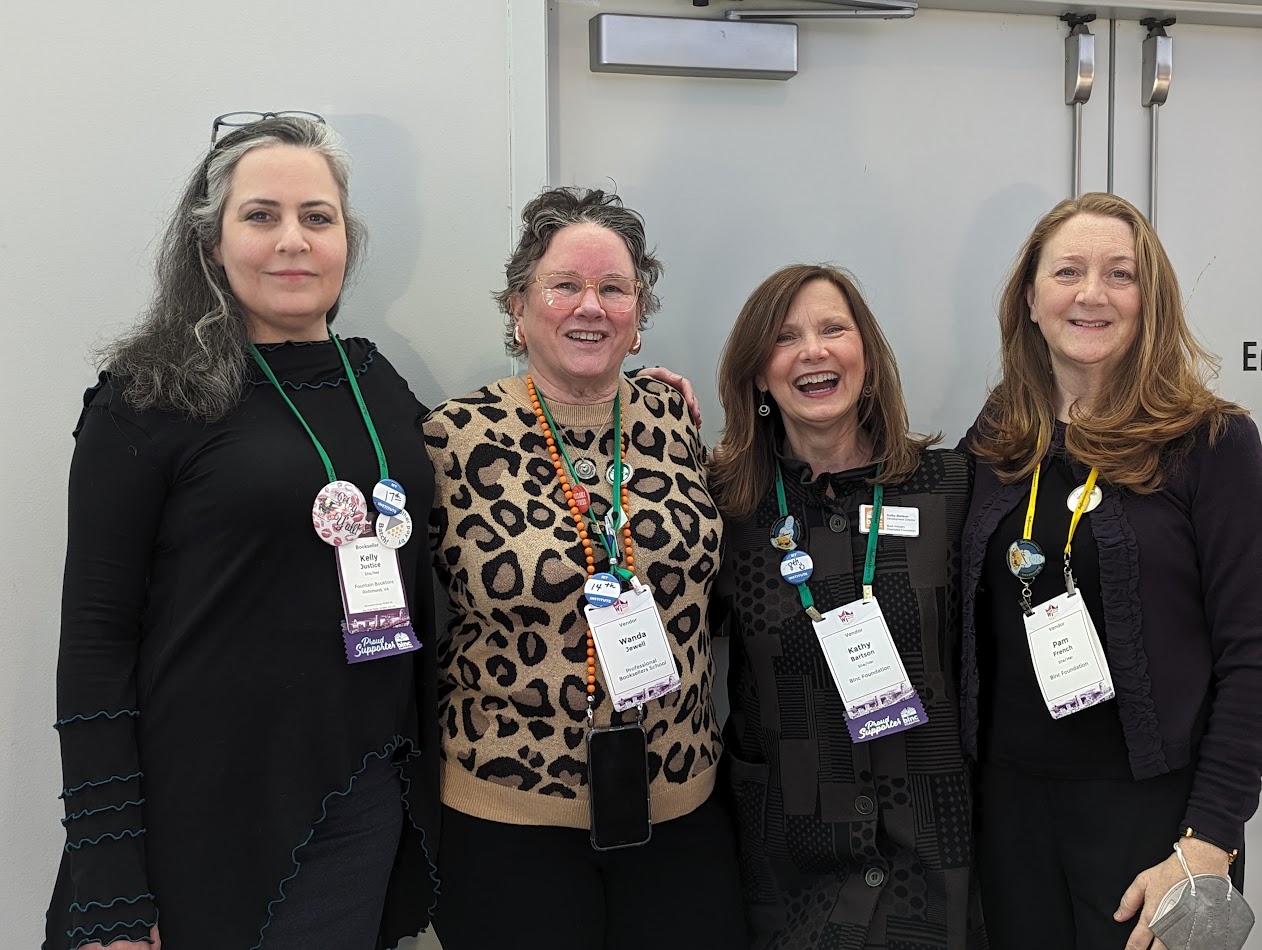 Kelly Justice, Fountain Bookstore, Richmond Va.; Wanda Jewell, former Southern Independent Booksellers Alliance executive director and now a fundraiser; and BINC's Kathy Bartson and Pam French.
Kelly Justice, Fountain Bookstore, Richmond Va.; Wanda Jewell, former Southern Independent Booksellers Alliance executive director and now a fundraiser; and BINC's Kathy Bartson and Pam French.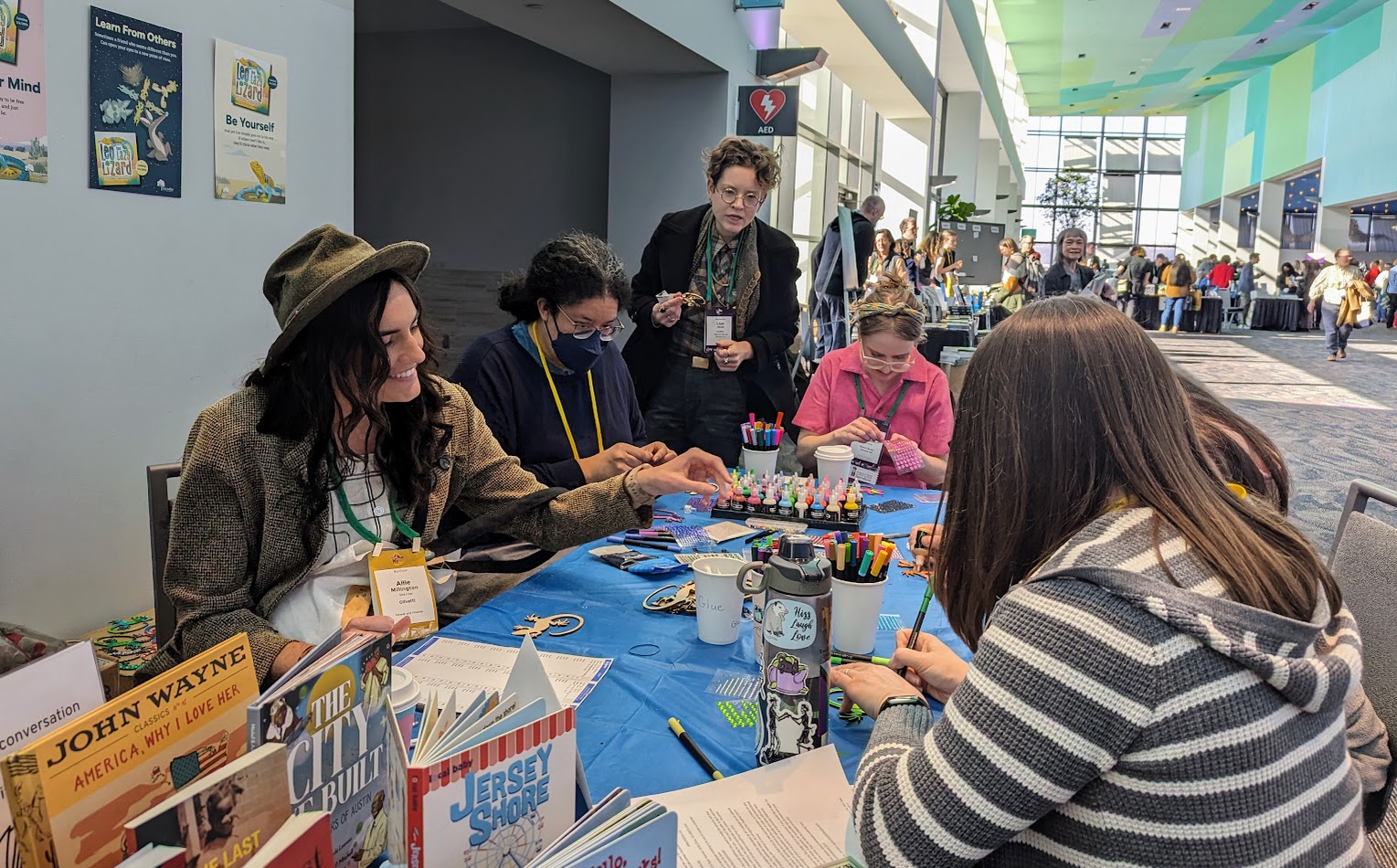 At Arcadia Publishing's stand, booksellers decorated lizard-shaped wooden cutouts for Leo the Lazy Lizard, a forthcoming picture book about mindfulness by Ed Shankman, illus. by David Michael O'Neill.
At Arcadia Publishing's stand, booksellers decorated lizard-shaped wooden cutouts for Leo the Lazy Lizard, a forthcoming picture book about mindfulness by Ed Shankman, illus. by David Michael O'Neill.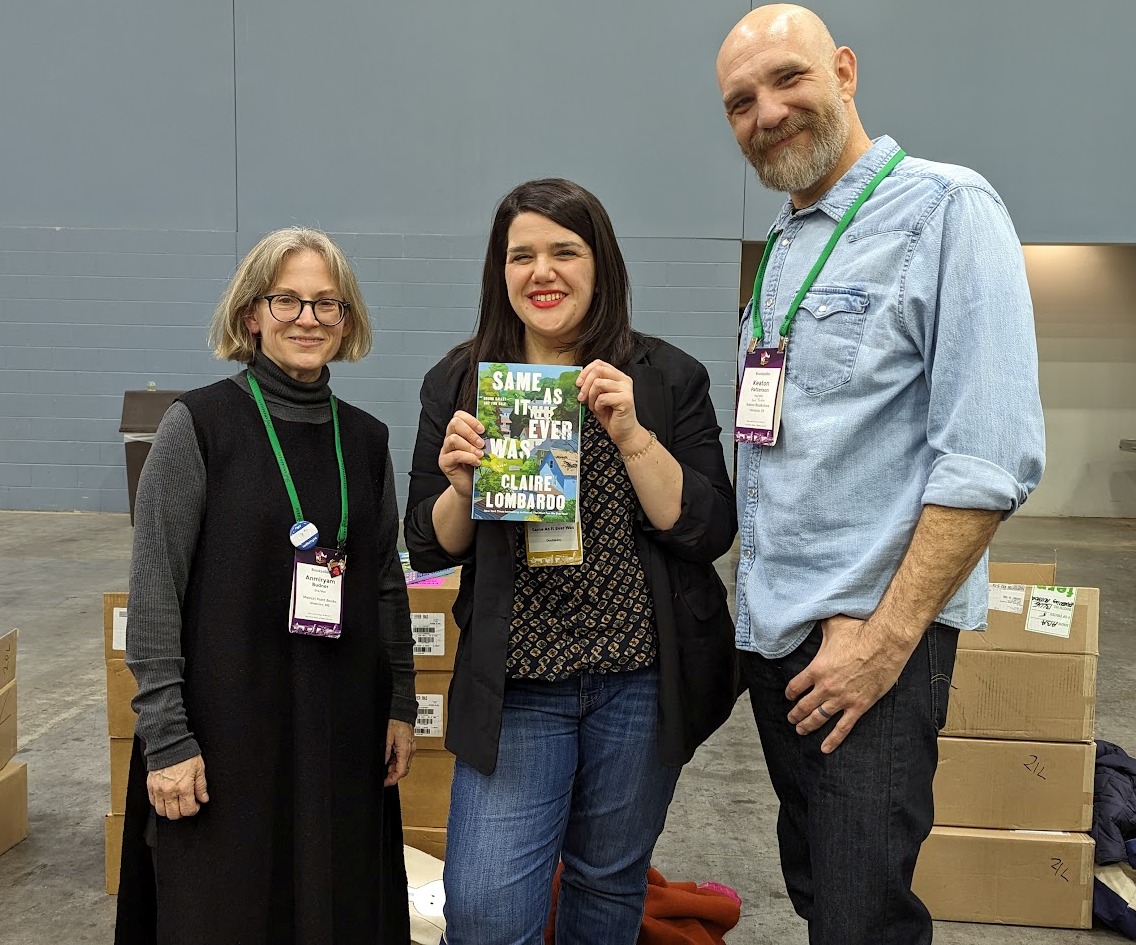 At the evening Author Reception, author Claire Lombardo (Same As It Ever Was, Doubleday, June) flanked by Anmiryam Budner, Main(e) Point Books, Islesboro, Maine, and Keaton Patterson, Brazos Bookstore, Houston, Tex.
At the evening Author Reception, author Claire Lombardo (Same As It Ever Was, Doubleday, June) flanked by Anmiryam Budner, Main(e) Point Books, Islesboro, Maine, and Keaton Patterson, Brazos Bookstore, Houston, Tex.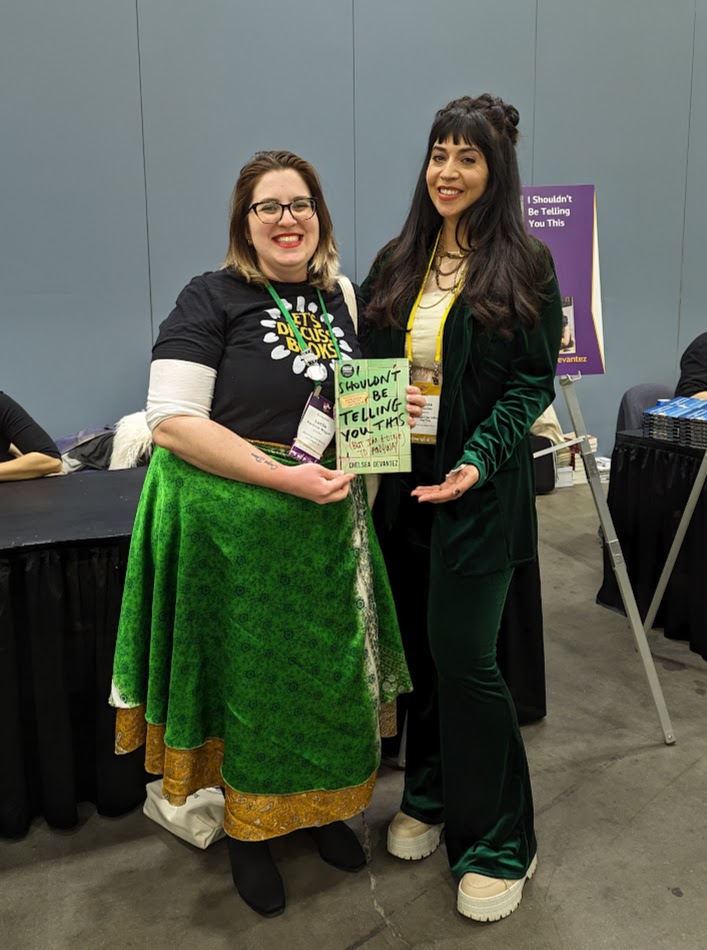 Lucy Perkins-Wegel, Blinking Owl Books, Fort Myers, Fla., with
Lucy Perkins-Wegel, Blinking Owl Books, Fort Myers, Fla., with 
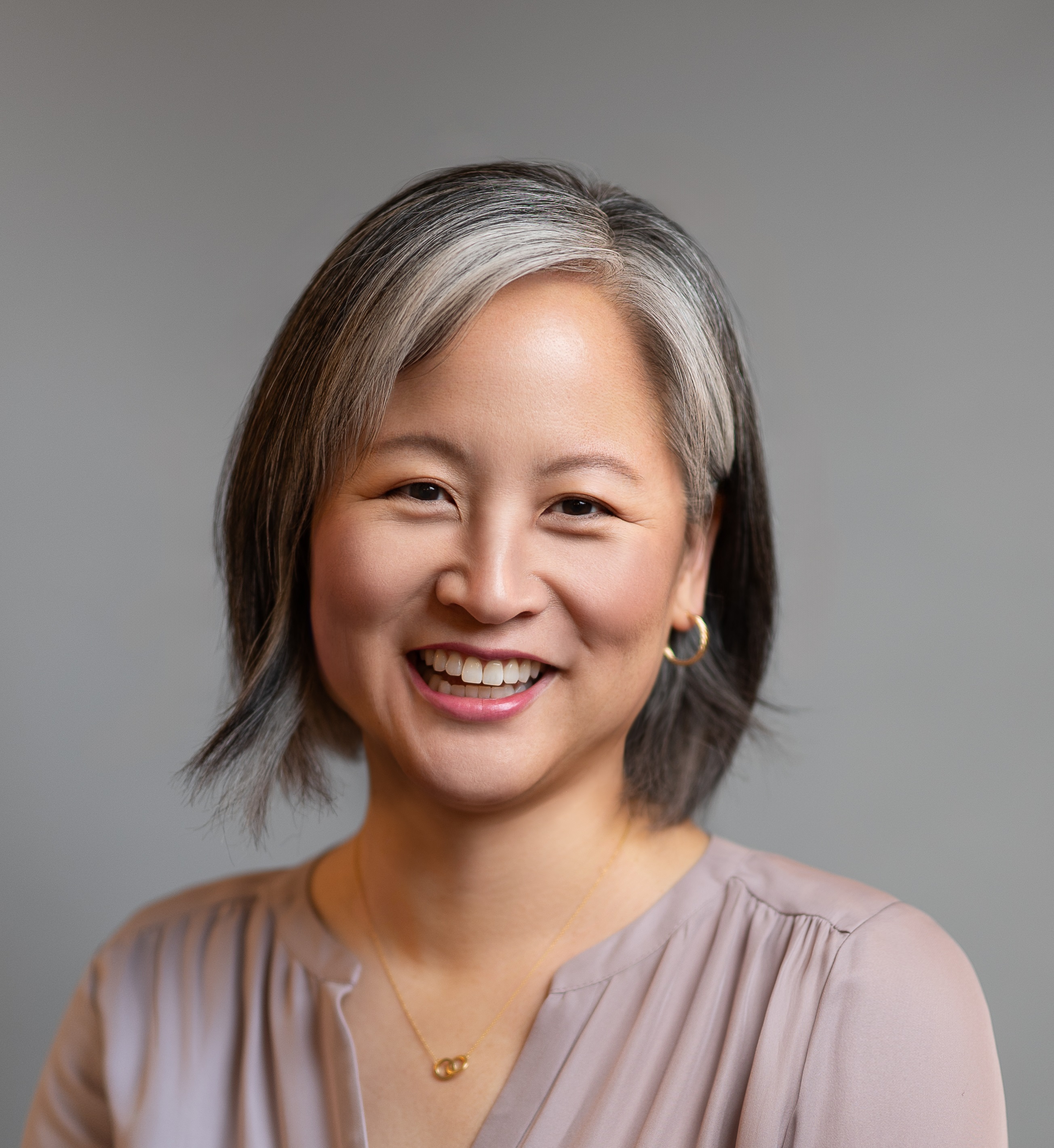
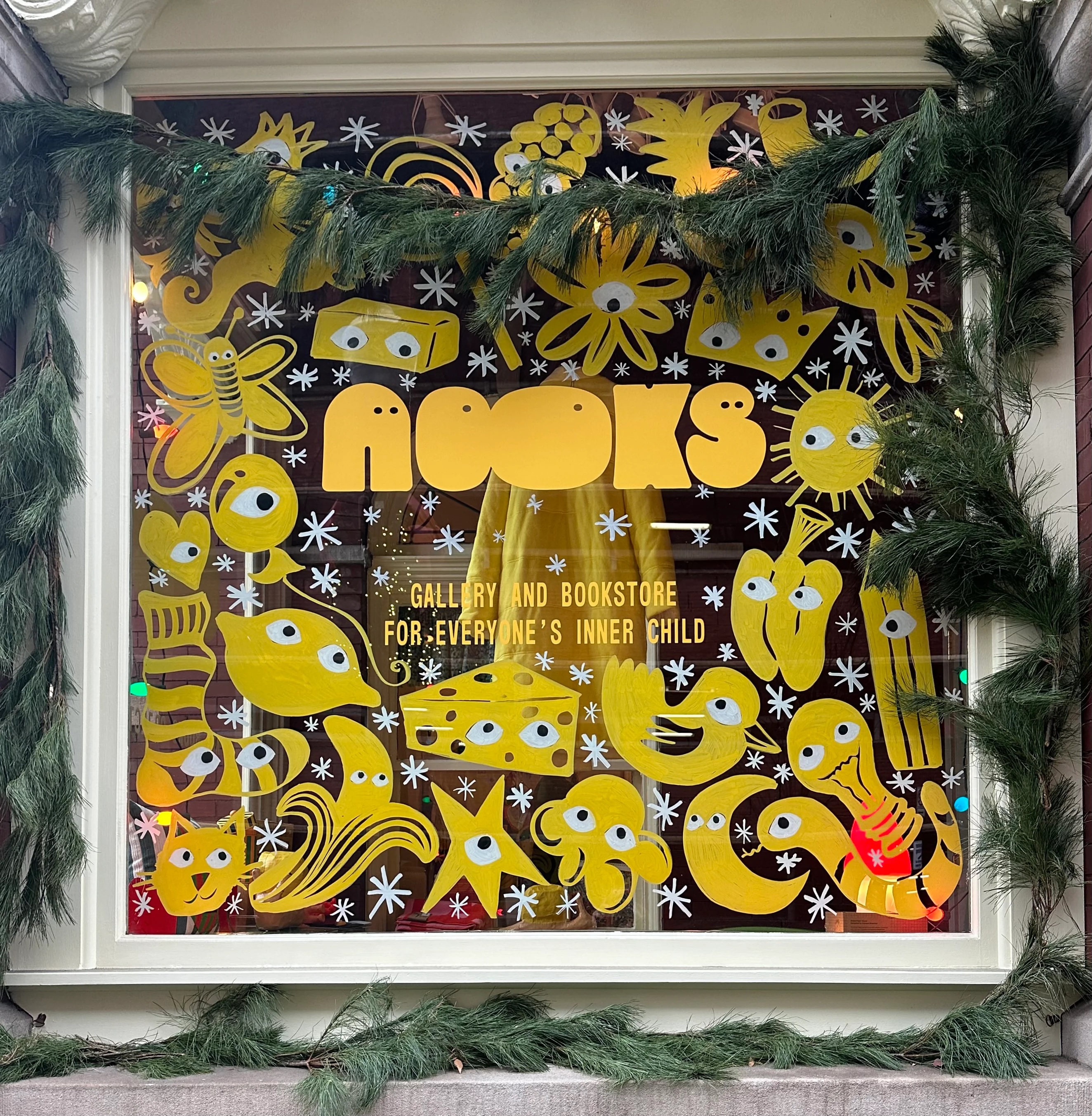
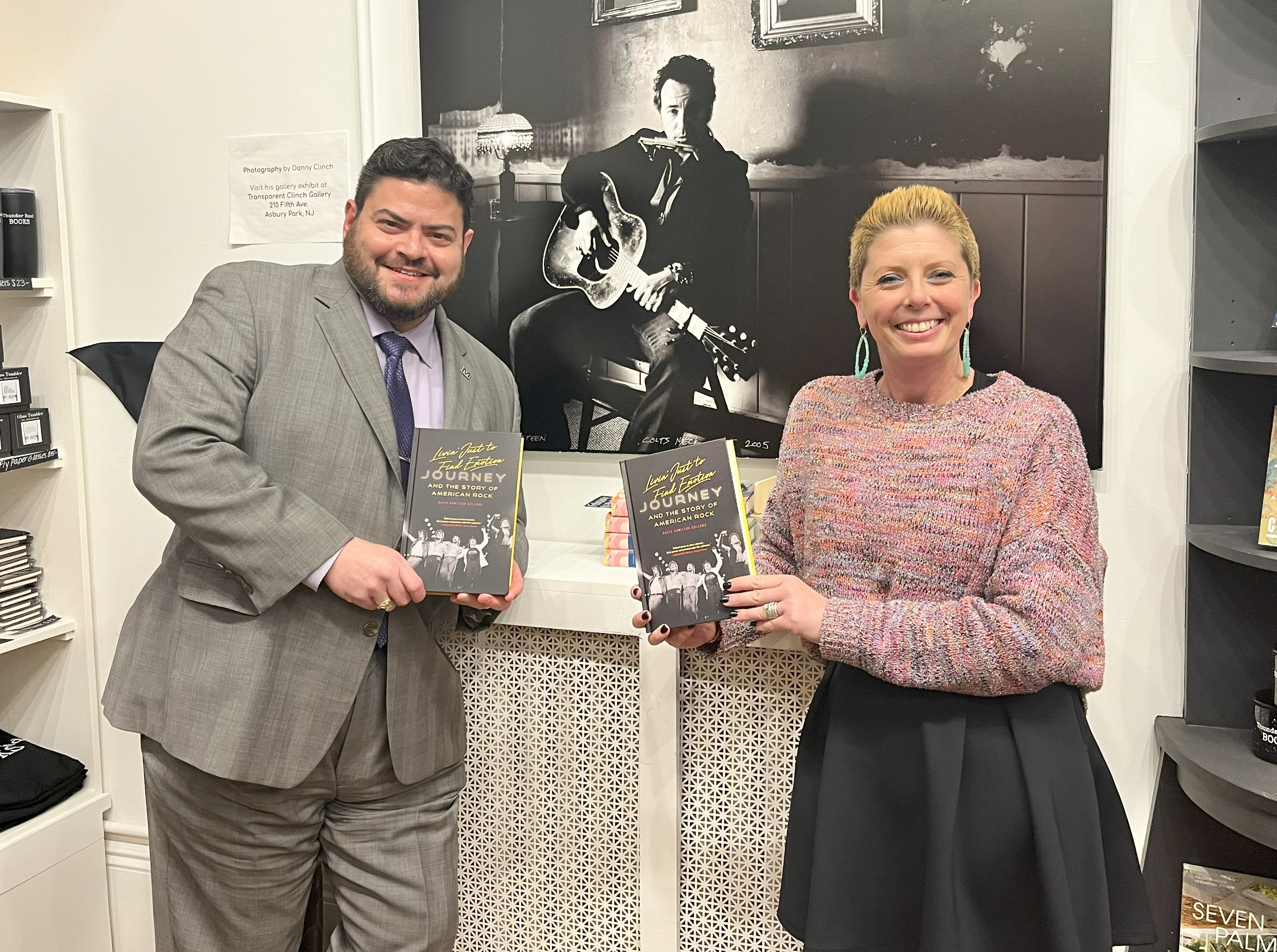
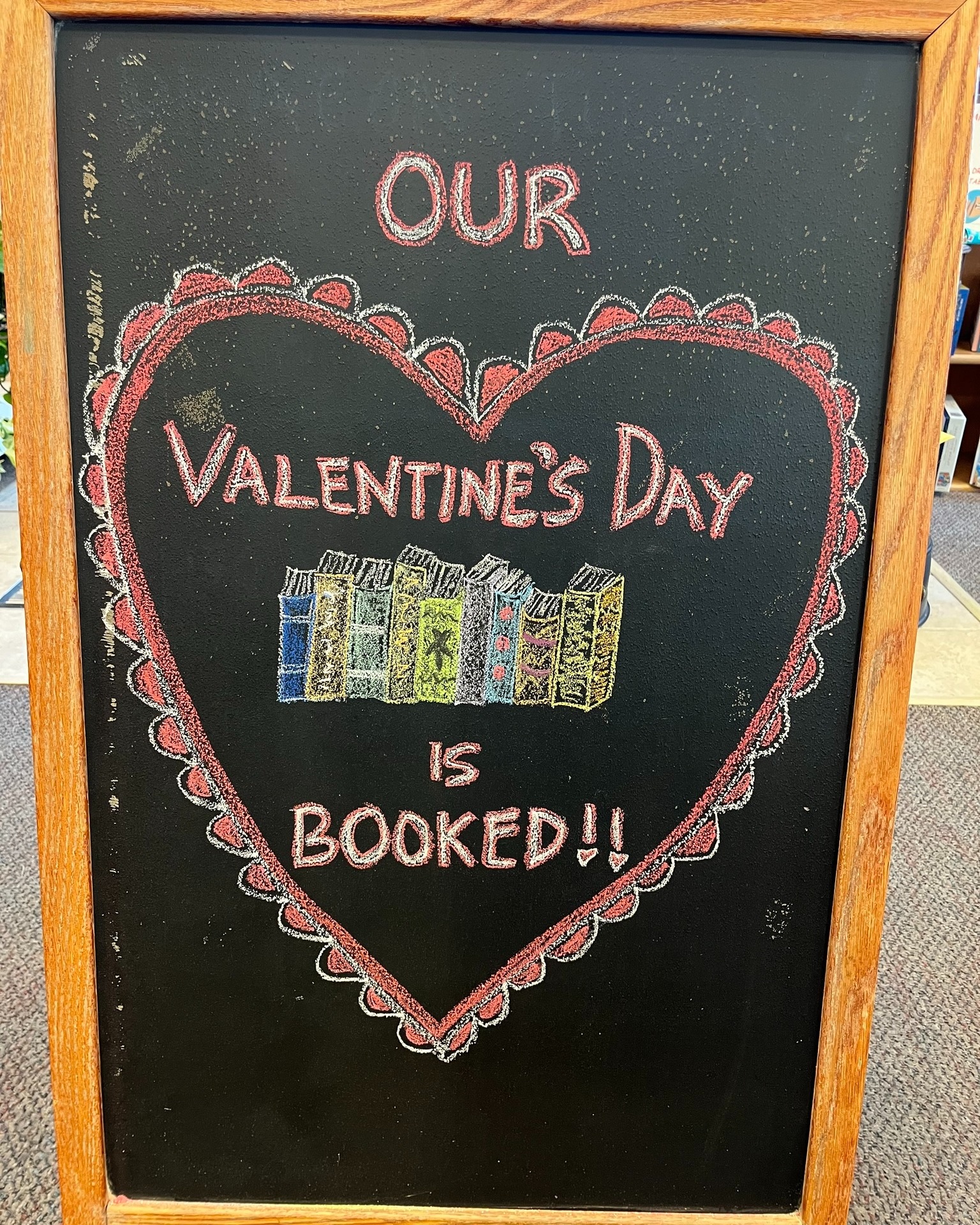 "
"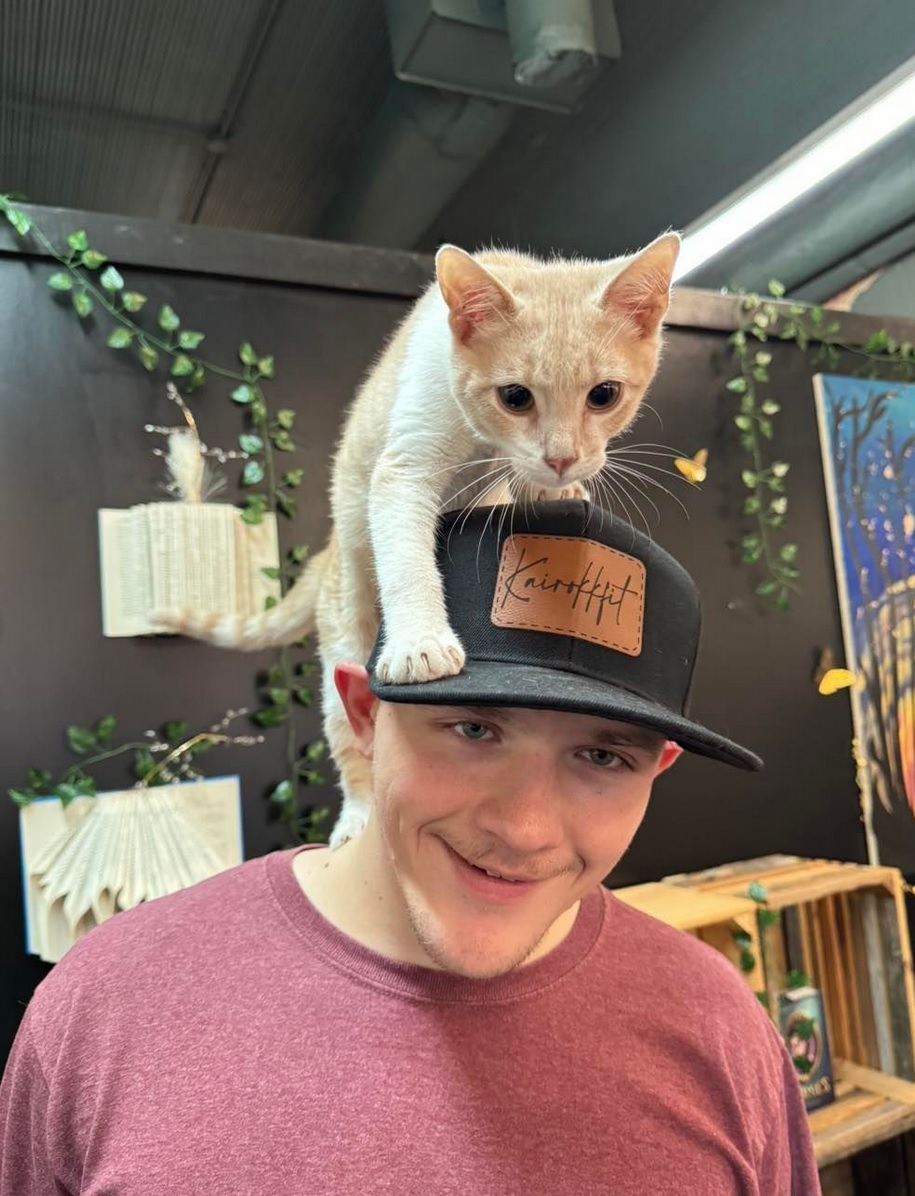 "
"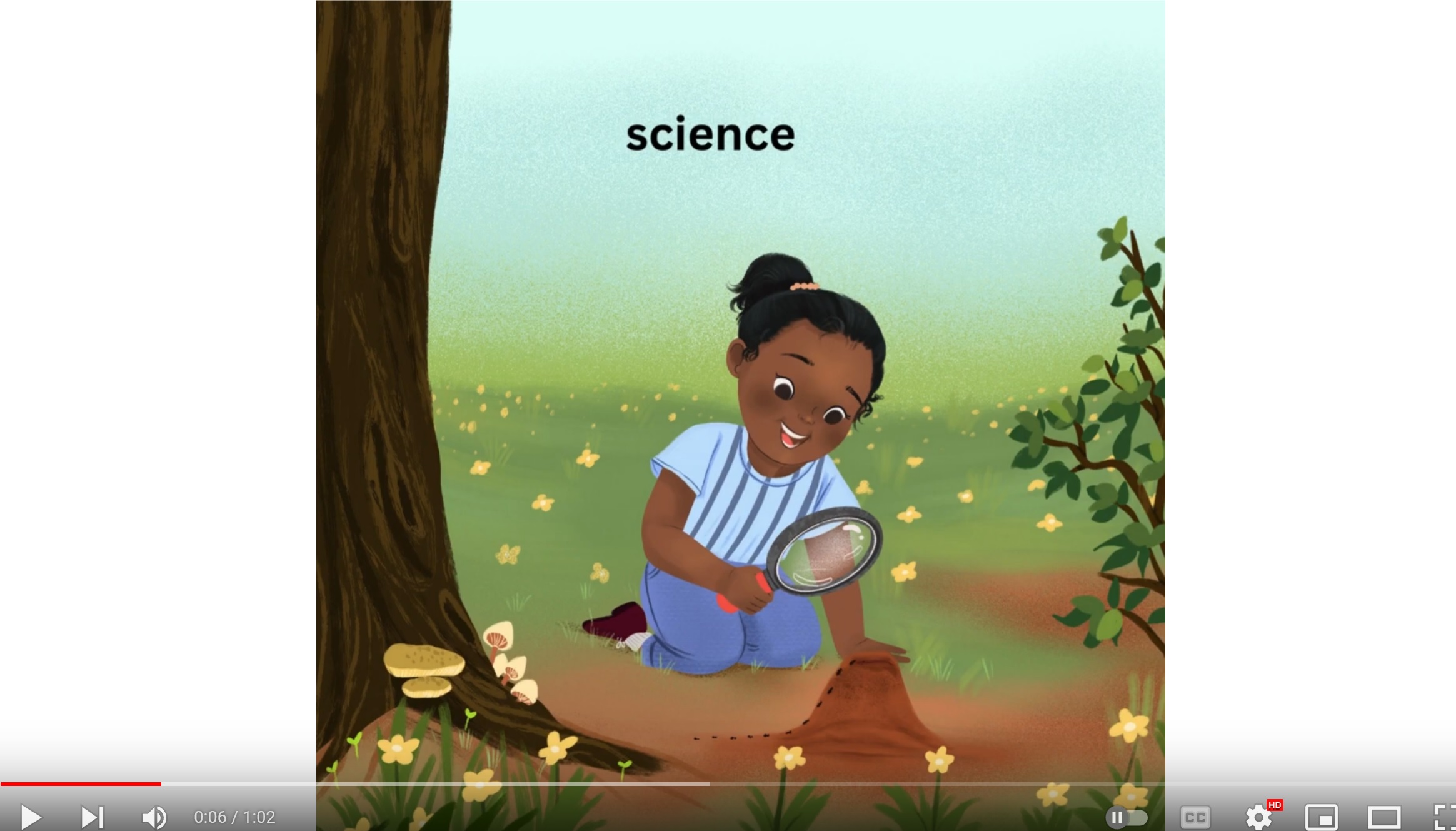 Dancing Through Space: Dr. Mae Jemison Soars to New Heights
Dancing Through Space: Dr. Mae Jemison Soars to New Heights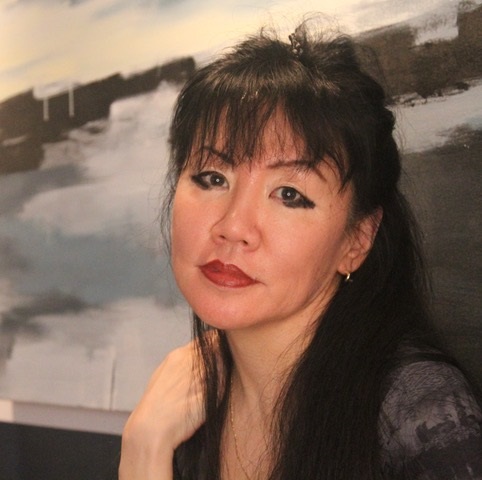
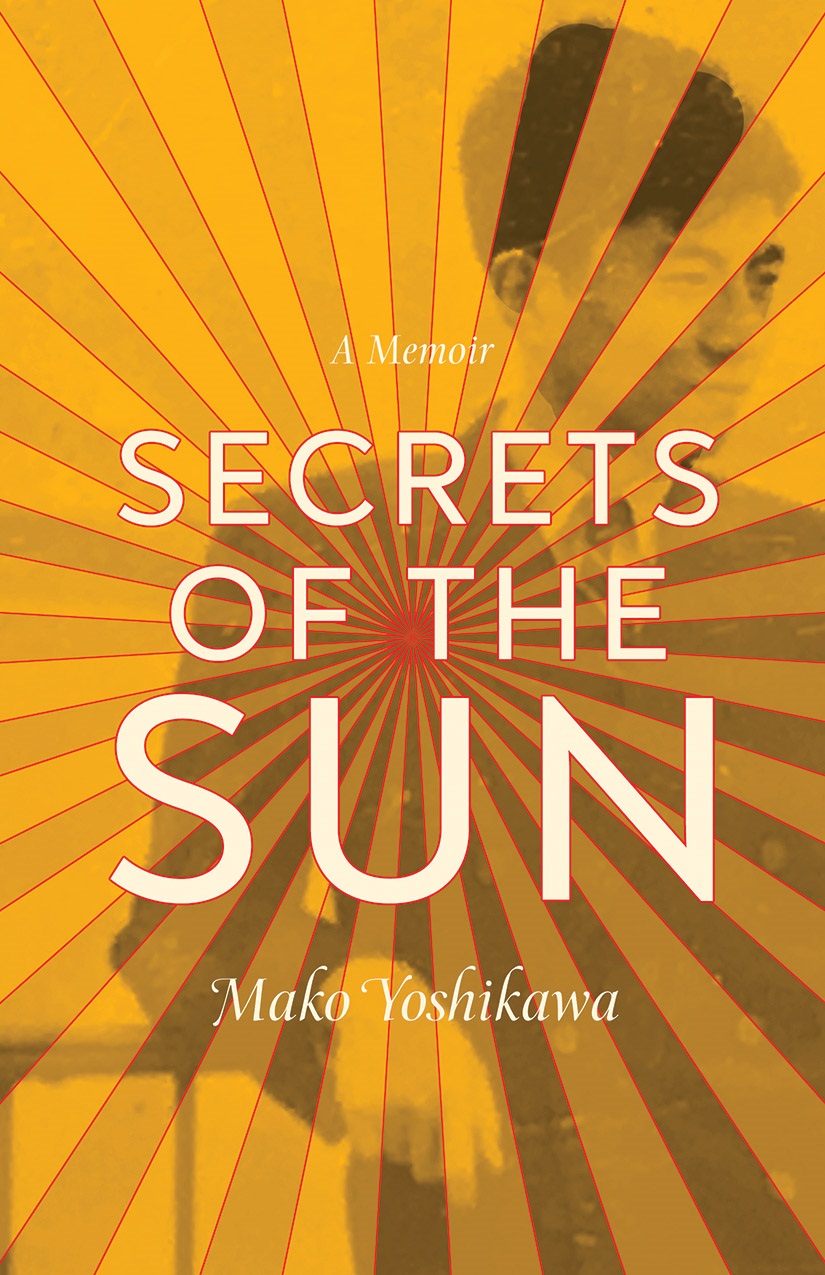 Book you've faked reading:
Book you've faked reading: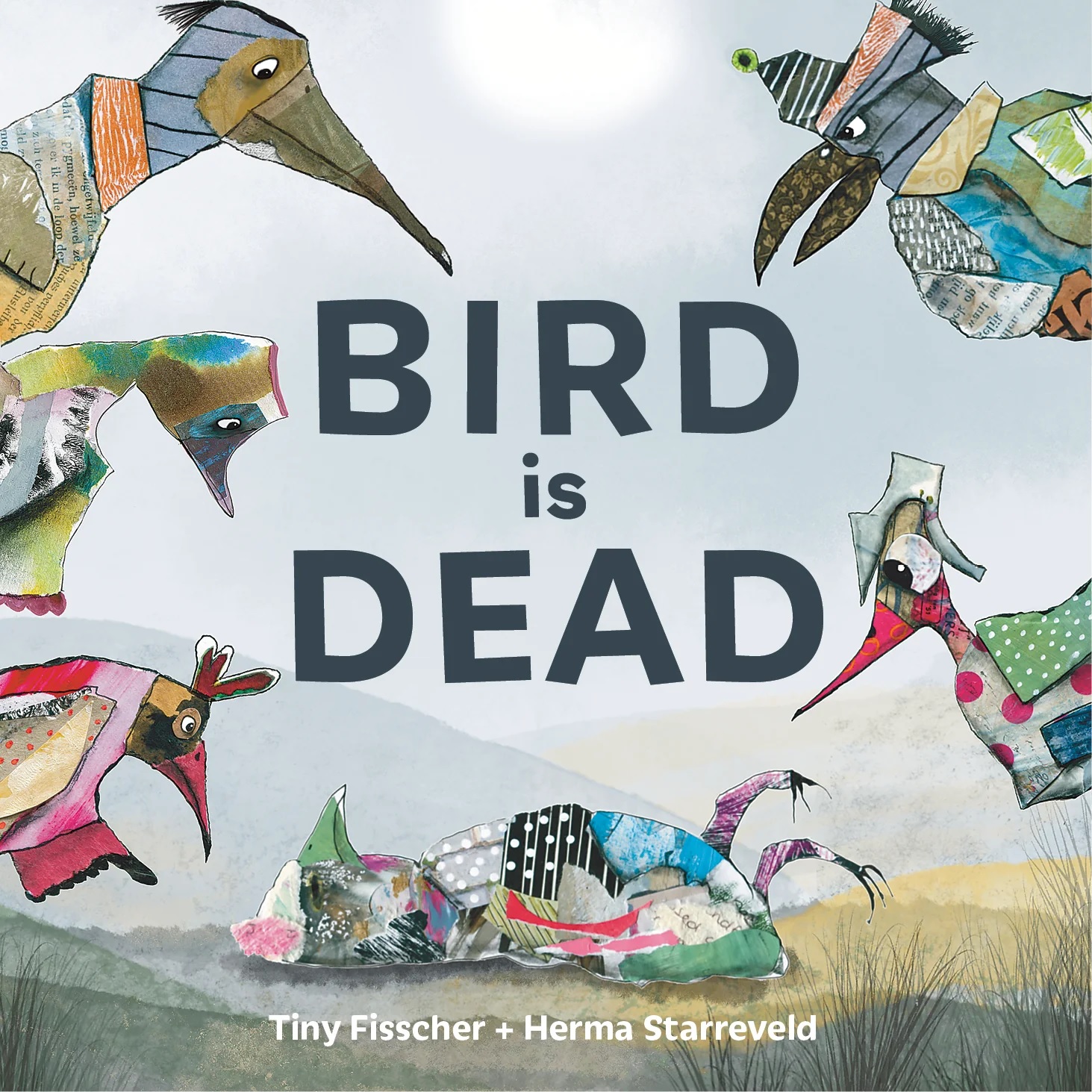 Bird is dead. He was alive yesterday, but now he isn't, and this forthright yet gentle story invites readers to process Bird's death while validating a range of emotional reactions to the loss.
Bird is dead. He was alive yesterday, but now he isn't, and this forthright yet gentle story invites readers to process Bird's death while validating a range of emotional reactions to the loss.